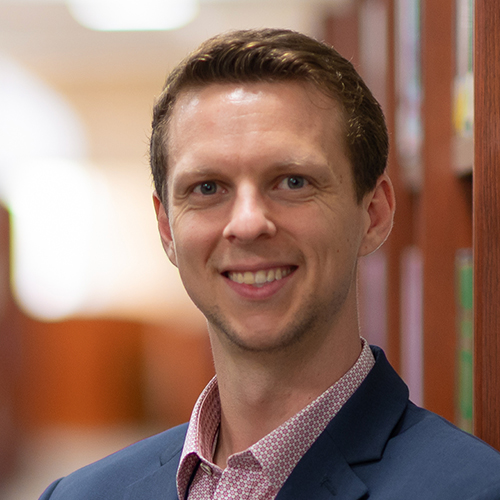About Us
The Center for Innovation in Teaching and Learning (CITL) supports the vision of American University of Sharjah to be globally recognized for outstanding and innovative teaching and learning, leading to positive and distinctive impacts on the region and beyond. The work of the CITL reflects the institutional values associated with providing a transformative student experience, maintaining an inclusive community and supporting intellectual inquiry.
- Vision and Mission
VISION
The American University of Sharjah Center for Innovation in Teaching and Learning aspires to promote innovative teaching for an enhanced learning experience at AUS.
MISSION
The American University of Sharjah Center for Innovation in Teaching and Learning provides a welcoming environment that promotes pedagogical innovation, provides opportunities for the effective integration of technology and supports all faculty in their efforts to enhance teaching and learning.
- Core Values
The primary goals of CITL are aligned with the AUS institutional values:
Instructional Innovation (Transformative Student Experience)
- Cultivating a culture of classroom innovation that equips faculty members with pedagogical tools, strategies and knowledge necessary to support the integration of educational technologies that foster an inclusive and engaging learning environment for students of different backgrounds, experiences, cultures and abilities
Faculty Diversity and Inclusion (Inclusive Community)
- Providing faculty members with a mutually respectful intellectual environment in which diversity and inclusion are valued
Lifelong Learning (Intellectual Inquiry)
- Promoting professional development opportunities in teaching and learning in order to expand scholarship, lifelong learning and career growth
- Providing and transforming the intellectual academic growth and skill acquisition of our students
- Main Roles
- Support the development, delivery and evaluation of courses and programs
- Provide support for enhancing teaching and learning
- Support efforts to improve the assessments of learning outcomes
- Provide training and assistance with instructional pedagogies and technologies to faculty
- Provide personalized support to instructors for new and/or revised courses delivered in face-to-face, online or blended formats
- Assist in the development, use and evaluation of innovative learning environments
- Work in coordination with faculty to set effective and efficient standards for the use of learning and teaching technology tools
- Provide leadership in the development of coherent digital learning tools and platforms
What We Offer
Our services range from individualized support to seminars and workshops, all of which can help improve your teaching effectiveness.
- Services
- Faculty consultations (including one-on-one, private and confidential sessions)
- Mentoring program for junior faculty
- Workshops on how to improve teaching skills and learning outcomes
- Training programs on innovation, experimentation and use of technology to enhance teaching
- Classroom visits and peer evaluation of faculty teaching
- Personalized assistance for skill development
- LMS instructional strategy (including assessment of students)
- Resources
These resources are provided for some quick ideas on key teaching topics or starting points to explore various aspects of teaching. If you do not find what you need, contact us at [email protected] and we will help you individually.
Online Teaching Tools
- Blackboard Collaborate Ultra
- Google Drive
- Google Meet
- Panopto Video Platform
- How to connect your Wacom tablet to your mac
Online Teaching Resources
Other Resources
We continuously collect research articles and training materials related to teaching effectively in the era of technological change. If you have areas that you would like us to explore, please let us know.
- Certification Programs
CITL's teaching certificates programs are designed to promote pedagogical innovation and support faculty professional development. These programs are directly linked to AUS strategic plans, namely:
- Strategy II.1.2. Enrich existing methods and explore innovative modes of course delivery
- Strategy II.2.1. Value, promote and acknowledge excellence in teaching and approaches that support creative and critical thinking
- Strategy II.2.3. Support the attainment of educational goals through providing effective spaces, resources and digital learning tools
- Certificate in Teaching and Learning Excellence
The Certificate in Teaching and Learning Excellence (CTLE) is open to all AUS faculty members and teaching staff interested in working with colleagues to discuss, share ideas, and deepen their understanding of teaching and learning excellence. This program is offered exclusively during the fall semester.
The selection of topics and activities offered in this certification program is related to successful teaching and professional development in higher education. Participants will have the opportunity to explore, evaluate and implement a variety of teaching strategies and pedagogical approaches; engage with scholarly literature; and demonstrate effective teaching practices.
Participants who successfully complete this program will be eligible to apply for a fellowship award by Advance HE: UK Professional Standards for Teaching and Learning (https://www.advance-he.ac.uk/fellowship#overview). The award provides an international quality mark, enhancing participants’ professional profile and opening pathways for further professional and career development. Fellowships are embedded in the UK and have been adopted by increasing numbers of higher education institutions globally, from the Americas to Australasia.
Program Objectives
The CTLE program is organized around the integration of learning outcomes, learning assessments and learning activities (in alignment with the fellowship program). In the CTLE program, participants will have the opportunity to:
- understand principles of learning and teaching, and apply these principles to their own practice
- articulate their own personal theory of learning.
- design learning activities that focus on active learning
- use appropriate approaches to teaching and learning to help students learn more effectively
- develop their reflective practice skills to help them evaluate and develop their own practice
- learn collaboratively
Participation in the CTLE program can be highlighted in your dossier to be recognized for your next merit or promotion.
Please note that visiting, adjunct, and part-time faculty and teaching staff are unfortunately not eligible for sponsorship by CITL at this time.
For more information, please contact CITL at [email protected] or reach out directly to the program facilitator, Josiah Jodrey, at [email protected].
- Course [Re]design Certification
The Course Redesign Certification (CRC) is a professional certificate created by the AUS Center for Innovation in Teaching and Learning. This program is open to all AUS faculty members interested in working on designing a brand-new course or redesigning an existing course through best practices in course design and alignment with course learning outcomes. This program is available exclusively during the fall and spring semesters.
The CRC program is a 12-week (mostly) asynchronous program for full-time AUS faculty members.
Because of the self-paced nature of the program, participants are responsible for keeping up with their progression through the program and are expected to manage their time effectively to complete all the required coursework and assessments.
Participants should expect a weekly workload of two to three hours throughout the program.
Participants will also be expected to attend three CITL workshops aimed at enhancing faculty teaching methods and supporting effective course design.
During the program, participants are required to have at least two one-on-one consultations with the program facilitator and/or the CITL learning design team to discuss and support the specific course design or redesign initiative each participant is undertaking.
Please note that this certificate is not accredited at the academic level.
Program Objectives
The program achieves its objectives and outcomes through the active participation and engagement of its participants.
In the CRC program, participants will have the opportunity to:
- identify and describe various best practices for designing a new course, or for redesigning an existing course
- analyze current course designs to identify strengths and weaknesses, and evaluate alignment to desired course learning outcomes
- create clear and measurable course learning outcomes to guide the course design process
- design and execute effective assessments linked to corresponding learning objectives.
- implement designed or redesigned courses while continuously reflecting on and improving the effectiveness of the course design
For more information, please contact CITL at [email protected] or reach out directly to the program facilitator, Josiah Jodrey, at [email protected].
- Certificate in University Teaching for PhD Students
The Certificate in University Teaching (CUT) program is designed to provide AUS PhD students an opportunity to develop their teaching skills through innovative pedagogical and reflective practice. Participants are required to attend four face-to-face sessions and complete weekly online asynchronous activities with a moderate weekly workload. This program is available exclusively during the fall and spring semesters.
Participants will analyze and reflect on the teaching tasks through discussions of various college-level teaching and learning topics, current pedagogical principles, assessment and evaluation techniques, and effective grading and feedback methods. The program will include a mentorship from a faculty member with a few class visits for teaching observation and feedback on participants’ ability to conduct successful class sessions with various engaging learning activities.
Objectives
Participants will:
- identify and describe various college-level teaching and learning practices
- evaluate pedagogical practices that engage students and promote active learning
- design a comprehensive course in a learning management system (LMS)
- incorporate feedback from faculty mentors to improve teaching effectiveness
For more information, please contact CITL at [email protected] or reach out directly to the program facilitator, Josiah Jodrey, at [email protected].
- New Faculty Orientation
At the Center for Innovation in Teaching and Learning (CITL), we are dedicated to ensuring that new faculty members have a smooth and enriching transition into our academic community. Our New Faculty Orientation (NFO), held every semester over two days, provides the tools, resources and connections necessary for a successful start at AUS.
The orientation program introduces new faculty to a wealth of resources and opportunities across the university and offers guidance on effective teaching, student engagement and navigating the cultural aspects of living and working in the UAE.
Throughout this comprehensive orientation, new faculty members will:
- gain insights into our institutional culture, values and the strategic priorities that guide our mission
- engage with key faculty and administrators who are committed to supporting your professional growth and success
- explore innovative teaching strategies and cutting-edge technologies that will enhance your classroom experience and student engagement
- participate in interactive sessions on the latest trends in higher education, with a special focus on integrating digital tools and Generative AI (GAI) into your teaching practices
- learn about the cultural aspects of the UAE, providing valuable context and understanding to help you thrive both professionally and personally in your new environment
- receive training on inclusion and accessibility, ensuring that your teaching methods support an inclusive and accessible learning environment for all students
This orientation helps you and your fellow newly recruited faculty members connect with experienced colleagues to learn about the university and the opportunities it offers for your growth and success. Highlights include presentations by campus leaders and senior faculty, as well as panel discussions where faculty share their experiences and insights.
In addition, the orientation includes a reception with university leaders, providing a relaxed environment for networking and building relationships with fellow faculty members. You will also learn about the wide array of resources available to support your academic and professional journey at AUS.
Whether you are new to academia or an experienced educator, our orientation program is designed to equip you with everything you need to thrive in your role.
Director's Message
Dear Colleagues,
On behalf of the Center for Innovation in Teaching and Learning (CITL), I warmly welcome you to the new academic year. CITL continues to support AUS faculty in advancing teaching excellence, fostering collaboration and promoting innovation in learning.
Our flagship certification programs, the Certificate in Teaching and Learning Excellence (CTLE), the Course [Re]Design Certificate (CRC) and the Certificate for University Teaching (CUT), provide structured, research-informed pathways for professional growth and classroom innovation.
A key recent initiative is our AI Hub, a centralized platform offering resources, tools and guidance to support faculty in integrating artificial intelligence into teaching, learning and research. Alongside this, we have introduced the Innovative Teaching Grant, designed to encourage and support faculty in experimenting with new teaching methods, technologies and approaches to enhance student engagement.
We are also proud to welcome the 2025–2026 Faculty Fellows:
- Dr. Christopher Kaltenbach, Associate Professor of Art and Design, CAAD
- Diana Audi, Senior Instructor of Mathematics and Statistics, CAS
- Dr. Eid Alotaibi, Assistant Professor of Accounting, SBA
- Dr. Mahmoud Ismail Awad, Associate Professor of Industrial Engineering, CEN
- Dr. Neslihan Bilikozen, Assistant Professor of Writing Studies, CAS
Their expertise and commitment to reflective, student-centered teaching will strengthen CITL’s mission across AUS.
This is an exciting time to be part of AUS as we embrace new opportunities in higher education. I invite you to engage with our programs, participate in upcoming events, explore the AI Hub, and take advantage of initiatives like the Innovative Teaching Grant to further enrich teaching and learning across the university.
Dr. Norita Ahmad
Director, Center for Innovation in Teaching and Learning
Professor of Information Systems and Business Analytics
School of Business Administration
CITL News Highlights
Read the latest news and updates from the Center for Innovation in Teaching and Learning.
Faculty Fellows Program (FFP)
The Faculty Fellows Program (FFP) is designed and facilitated by fellows from schools/colleges across campus. Faculty fellows are full-time faculty members who have demonstrated leadership capacity in the areas of teaching and learning. Faculty fellows also help to address teaching, learning and technological challenges within their individual schools/colleges.
- About the Program
The CITL Faculty Fellows Program offers five one-year fellowships to faculty members committed to improving teaching practice, exploring educational innovation and supporting faculty development across the university.
In 2025–2026, selected fellows will be aligned with one of the following strategic focus areas:
- AI and Teaching Innovation (1–2 fellows):
The selected faculty fellow will support CITL's AI Hub initiative by exploring and promoting the responsible integration of artificial intelligence in teaching and learning. This includes identifying effective AI tools for classroom use, supporting faculty in adopting AI ethically and effectively, and contributing to AI-related resources, events and workshops. The fellow will help shape strategies for AI literacy among faculty and students and play a key role in planning and implementing AI Week and other related activities.
Example contributions:
- Curate and review AI tools for teaching
- Lead AI-focused workshops or demonstrations
- Collaborate on the development of faculty training materials on AI use
- Pedagogical Excellence and Faculty Development (1–2 fellows):
This fellow will contribute to the enhancement of teaching excellence by supporting CITL’s certificate programs such as the Certificate in Teaching and Learning Excellence (CTLE) and the Course Redesign Certificate (CRC). The fellow will also help design and facilitate workshops, lead faculty learning circles, and share evidence-based practices related to teaching effectiveness, curriculum design and learning outcomes.
Example contributions:
- Co-facilitate sessions in CTLE and CRC programs
- Design practical teaching resources for AUS faculty
- Support peer review of teaching or micro-teaching sessions
- Call (1 fellow):
This fellow will focus on fostering inclusive, culturally responsive and equitable teaching practices across disciplines. They will contribute to raising awareness and providing tools to help faculty effectively navigate cultural diversity in the classroom. This may include developing resources, organizing dialogues or workshops, and collaborating with other units (e.g., Academic Support Center).
Example contributions:
- Develop and share inclusive syllabus and activity templates including the Dos and Don’ts.
- Facilitate intercultural classroom management discussions
- Co-lead sessions on Universal Design for Learning (UDL), language equity or decolonizing the curriculum
- Faculty Fellows' Commitment
Faculty Fellows will contribute to one of the program’s strategic focus areas—AI and Teaching Innovation, Pedagogical Excellence and Faculty Development, or Educational Technology Integration—and are expected to:
- serve as liaisons between the faculty of the school/college and the CITL to promote the continuous improvement of teaching and learning
- identify school/college specific-interest and needs for best teaching practices
- develop a collaborative network of faculty committed to excellence in teaching and learning
- organize and lead teaching development events such as Best Practices in Teaching and Learning Conference (BPTLC), AI Week, seminars, workshops, class observations and opening their classes to faculty colleagues
- lead a module in the PhD teaching certification program and serve as a mentor for at least one of the PhD students, i.e., having the PhD student(s) observe their classroom and supporting the PhD student(s) with program assignments (lesson plan review, statement of teaching philosophy, teaching observation, and other LMS assignment)
- stimulate cross-disciplinary interaction around the use of technology in promoting active learning, student-centered approaches and evidence-based teaching pedagogy
- attend and provide support for all events organized by CITL
- dedicate at least two hours per week (or as needed) working with CITL in some of the above activities or other activities as requested by CITL
- Benefits of Being a Faculty Fellow
The benefits of being a Faculty Fellow are:
- a stipend for each academic year of service
- use of CITL as a support platform for teaching and learning projects in your school/college
- the opportunity to serve up to two academic years (upon approval of their renewal application)
- priority enrollment in all CITL programs
- recognition as a Faculty Fellow and leader supported by your school/college in ways that advance your university-level service record
- the opportunity to develop a network of engaged educators to support the AUS educational mission towards a transformative student experience
- Application Procedures
If you have an interest in promoting active learning, student-centered approaches, evidence-based teaching pedagogy and academic technologies, you should apply to be a Faculty Fellow.
Fellowships require at least a one-year commitment.
How to Apply
The Faculty Fellows Program opens its call for applications every summer for the new academic year. Selected candidates begin their fellowship in the fall semester of that year.
The selection process prioritizes alignment with program focus areas as well as balanced representation across colleges.
For more information, please contact us at [email protected].
FACULTY FELLOWS 2025–26
- Dr. Christopher Kaltenbach | CAAD
 Dr. Christopher Kaltenbach
Dr. Christopher Kaltenbach
Associate Professor of Art and Design
Department of Art and Design
Dr. Christopher Mark Kaltenbach is Associate Professor in the College of Architecture, Art and Design (CAAD). He is an artist/designer and writer who has worked in interdisciplinary roles in design and design education in Australia, Canada, Japan, Macau, the United States and the UAE. His work is in permanent collections at the New Mexico State University Art Museum, USA, and at AUS. In 2024, he was invited to debut the IMR (Insect Monitoring Radar) Tower at Dubai Design Week. With over 30 essays and research papers published, his writing appears in the book Insectum published by NSCAD University, and in the book Stories from the Camera published by UNM Press, as well as in the Dutch architecture and interior design magazines MARK and FRAME, and the Australian design magazines AR and INSIDE.
Philosophy:
With almost 30 years of architecture/design studio-based teaching experience, I believe pedagogical excellence is synonymous with faculty development. To teach well and appropriately is a process that evolves throughout the career of an educator. I was once told that you can only teach what you know. This principle applies on two levels: the first pertains to the subject of instruction. The more the instructor understands the subject, her/his relationship to it, and the institution's and students’ (perceived) relationship to it, the more effective that instructor is in delivering the course content and contextualizing it within the time and place of its delivery. The second level is the faculty’s knowing of themselves. It is to understand how they teach and connect with students, which is partly dependent on their persona in relation to the learning tasks given. These cumulative factors are the medium from which the instructional subject is funneled directly to the student, this in the hopes of not just being understood but also appreciated.
- Diana Audi | CAS
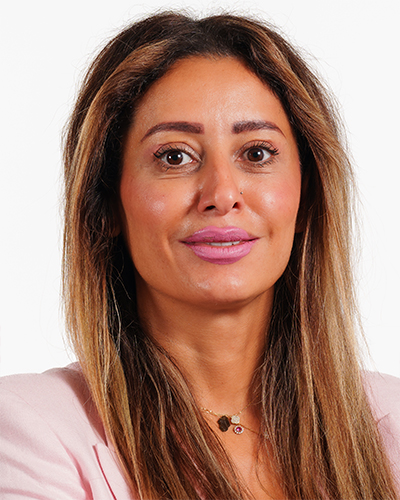
Diana Audi
Senior Instructor of Mathematics and Statistics
Department of Mathematics and Statistics
Diana Audi, MS, is a Senior Instructor of Mathematics with over two decades of teaching experience at the American University of Beirut (AUB) and AUS. A distinguished graduate of both AUB and the Lebanese University, she has consistently ranked among the top in her field, earning national recognition for academic excellence. She has taught and coordinated a wide range of undergraduate mathematics courses, from foundational logic and geometry to advanced calculus, linear algebra and partial differential equations. Her teaching consistently receives among the highest evaluations in her department, reflecting her commitment to student success.
Beyond the classroom, she has contributed to curriculum development, faculty committees and innovative teaching research, publishing widely on technology-enhanced learning methodologies. Her career reflects a deep dedication to making mathematics engaging, accessible and relevant to diverse learners.
Philosophy:
My teaching philosophy is centered on the belief that every student can succeed in mathematics when supported with the right tools, motivation and environment. I see teaching not simply as transferring knowledge, but as inspiring curiosity and empowering confidence. I strive to make mathematics approachable by connecting abstract concepts to real-world applications and by fostering interactive, student-centered classrooms.
Over the years, I have integrated innovative methods—such as Classpoint, AI Tools, iPads, lecture capture, MyMathLab and interactive platforms like Pull-Everywhere—to create inclusive and dynamic learning experiences. I aim to nurture both conceptual understanding and problem-solving skills, tailoring my instruction to large lectures as well as smaller seminars.
Above all, I view teaching as an opportunity to make a lasting difference in students’ academic journeys, helping them not only master mathematics but also develop a lifelong appreciation for its power and beauty.
- Dr. Eid Alotaibi | SBA

Dr. Eid Alotaibi
Assistant Professor of Accounting
Department of Accounting and Information SystemsEid M. Alotaibi is an Assistant Professor of Accounting and Information Systems at AUS. His research examines the intersection of artificial intelligence, accounting information systems, ESG reporting, blockchain and audit analytics. He is a Certified Information Systems Auditor and holds certifications in data analytics from Google, Applied AI from IBM, and AI Essentials for Business from Harvard Business School. His teaching and research emphasize the integration of AI and advanced analytics into auditing and financial reporting, with a focus on automating assurance and governance.
Philosophy:
My teaching philosophy is centered on cultivating intellectual curiosity, analytical depth and professional judgement. I seek to create a rigorous and engaging academic environment that connects foundational principles with emerging technologies in accounting and auditing. I place strong value on academic integrity, critical evaluation of evidence and disciplined reasoning. By incorporating artificial intelligence and data analytics into pedagogy, I aim to prepare students to address contemporary challenges in assurance, reporting and decision-making.
- Dr. Mahmoud Ismail Awad | CEN
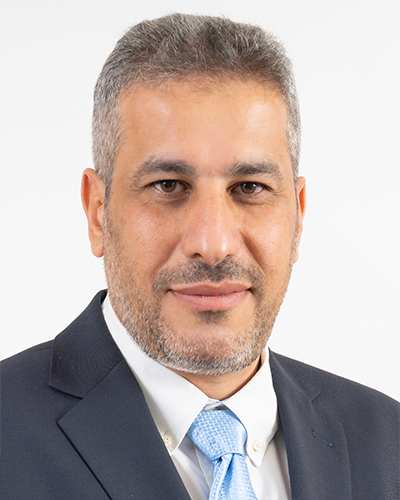 Dr. Mahmoud Ismail Awad
Dr. Mahmoud Ismail Awad
Associate Professor of Industrial Engineering
Department of Industrial EngineeringMahmoud Awad is an Associate Professor in the AUS Department of Industrial Engineering. He holds a PhD in Industrial Engineering from Wayne State University, USA. He has been a certified Six Sigma Black Belt from the American Society of Quality (ASQ) and Ford Motor Company since 2002. Prior to his academic career, he worked in the industry with several organizations including Schlumberger Technology Incorporation, Case New Holland and Ford Motor Company. His areas of research and teaching interest are Six Sigma, quality and reliability engineering, and reliability centered maintenance. He has published several research papers in internationally reputed journals and conferences. Dr. Awad has held several training courses in the USA, Europe and UAE in the areas of Six Sigma, process improvement, reliability engineering, DFMEA, and Design for Six Sigma (DFSS) for private and governmental organizations.
Philosophy:
My teaching philosophy is rooted in the belief that engineering education should inspire critical thinking, practical problem-solving and lifelong learning. I strive to create an engaging classroom environment where theory is closely integrated with real-world applications, enabling students to connect abstract concepts with industrial practice. At AUS, I emphasize interactive learning through case studies, project-based assignments, and the use of modern computational tools to prepare students for the challenges of a rapidly evolving global marketplace.
- Dr. Neslihan Bilikozen | CAS

Dr. Neslihan Bilikozen
Assistant Professor of Writing Studies
Department of EnglishNeslihan Bilikozen is an Assistant Professor in the AUS Department of English. She teaches undergraduate courses in academic writing, business writing and public speaking, as well as graduate courses in the MA TESOL program. She also supervises theses and mentors graduate students. She holds a Doctorate in Education from the University of Exeter.
Her research focuses on critical English for Academic Purposes (EAP), examining academic literacy development in English-medium instruction contexts. Her recent work explores the integration of artificial intelligence in education, investigating how AI can enhance teaching and learning while supporting ethical practices. Her scholarship directly informs her teaching, driving a practice of innovation and critical pedagogy in the classroom.
Philosophy:
My teaching is grounded in the belief that learning is most effective when students are active participants in shaping it. I foster learner autonomy through reflection, choice and collaboration, while also creating an inclusive classroom that values diverse perspectives and encourages critical engagement. Activities such as peer reviews, guided reflections and multimodal assignments help students not only strengthen their academic writing but also build metacognitive awareness and confidence.
Reflection is central to this process. For students, it is a way to evaluate their strategies, recognize growth and take greater responsibility for their learning. For me as an instructor, reflection provides a continuous cycle of feedback and insight, enabling me to adapt my pedagogy to the evolving needs of learners. This mutual process ensures that teaching and learning remain dynamic and responsive.
Another cornerstone of my approach is critical digital literacy. Rather than treating technology as a neutral tool, I guide students to question its implications, evaluate sources critically and use digital platforms responsibly. This has become especially urgent with the rise of generative AI, which I address by embedding opportunities for students to reflect on ethical use and practice responsible integration into their work.
My research and teaching continuously inform one another. Insights from my action research projects shape classroom practice, while student experiences inspire further inquiry. Ultimately, my goal is for students to leave not only with stronger academic skills but with the confidence and critical awareness to navigate a world where knowledge, technology and ethics constantly intersect.
Information for New Faculty
- Welcome To Your New Home!
You have just joined a vibrant, multicultural community. As faculty and staff residents comprise an integral part of our lively campus community, the university provides a wide range of facilities, services and opportunities that cater to the needs of our community members.
Coming to a new country and new position can be a stressful time for everyone concerned, especially if you also have family to consider. AUS faculty members come from many countries and cultures. Some are already acquainted with the Middle East. For others, this appointment introduces a completely new dimension to their lives. You will want to know what to expect and how to make the transition from your country to the United Arab Emirates (UAE) and AUS. While you will enjoy the general atmosphere of conviviality and warm hospitality that prevails here, there will always be cultural and behavioral differences that will take time to assimilate and accept. The CITL will attempt to answer the many questions and concerns you may have as a new faculty member at AUS.
- Pre-Arrival Information
Your contract has been signed and returned to the Office of the Chancellor, and now the process of getting to AUS commences. You should have received a welcome letter from Human Resources (HR) along with forms to complete and a list of required documents to be sent. For more information, download our New Faculty StartUp Guide. This guide contains useful information about these services to help with your transition to AUS and the UAE.
- Orientation
The New Faculty Orientation is a week-long event designed to help new faculty transition to living and working at American University of Sharjah.
Download our New Faculty StartUp Guide.
Workshops and Events
- Spring 2026 Workshop and Events
A full lineup of CITL seminars, workshops, and focused webinars is being offered this semester, providing opportunities for faculty, staff, and graduate students to learn, connect, and share ideas. Expect practical, classroom-ready takeaways, timely conversations on emerging themes, and interactive sessions designed to support teaching and learning as the term unfolds. The semester will also feature CITL’s annual Best Practices in Teaching and Learning Conference, bringing the AUS and the wider higher education community together to exchange insights and showcase effective approaches to teaching and learning.
Please click here to learn more about the workshops and events for Spring 2026.
- Fall 2025 Workshops and Events
CITL opened the semester by welcoming 45 new faculty members and delivering a series of forward-looking webinars that offered timely insights and practical takeaways for teaching and learning at AUS. The center also facilitated hands-on Active Learning workshops, expanded professional development pathways through its certification programs, and, in coordination with the Sheikha Nama Majid Al Qassimi Endowed Chair for Education Across Disciplines, hosted the Multi-Disciplinary Seminar, Digital Literacy Across Disciplines. The semester also featured the first Future Focus Series webinar, led by Dr. Norita Ahmad, which helped frame key priorities and emerging directions for assessment and teaching practice in an evolving educational landscape.
Please click here to view the list of workshops for Fall 2025.
- Spring 2025 Workshops and Events
Spring 2025 marked another vibrant semester for CITL, featuring timely and impactful initiatives that supported teaching excellence at AUS. The semester opened with the Spring 2025 New Faculty Orientation and reached a major milestone with the Third Annual Best Practices in Teaching and Learning Conference. Highlights also included CITL’s leadership in the “Education: AI and Beyond” Conference, a thought-provoking panel on social media and misinformation, and the launch of a new CUT Program cohort. The announcement of the 2024 Innovative Teaching Grant recipients capped a semester filled with innovation, reflection and community. Explore the link to learn more.
- Fall 2024 Workshops and Events
Explore the highlights from Fall 2024, in which CITL hosted a series of impactful workshops and events aimed at enhancing teaching practices across AUS. From the warm welcome of new faculty to hands-on training in technology integration, these sessions provided valuable opportunities for professional growth. Key moments included workshops on "Teaching Critical Thinking," "Constructive Alignment in Course Design," and "The Best of Both Worlds: Harmonizing Human-Centered Teaching with Technologically-Driven Classrooms." In addition, we continued our Apple in Education training and introduced our partnership with Jalinga Interactive Studio to help faculty create dynamic instructional materials for hybrid and online courses. A thought-provoking panel discussion on philosophy and AI also explored the philosophical implications of AI in education. Each event offered faculty practical insights and tools to engage students and enrich the learning experience.
Please click here to view the lists of workshops for Fall 2024.
- Spring 2024 Workshops and Events
Explore the workshops and events from Spring 2024, in which CITL hosted a variety of motivating workshops and events. From the Spring 2024 New Faculty Orientation to the panel discussions, faculty engaged in opportunities to enhance their teaching practices and integrate AI tools. Notable moments include the launch of the AI Hub and the Second Annual Best Practices in Teaching and Learning Conference. Additionally, the Revamped CUT Program introduced a fresh lineup of workshops to support PhD students in the CUT program.
Please click here to view the lists of workshops for Spring 2024.
- Fall 2023 Workshops and Events
In Fall 2023, CITL embarked on a season of educational growth, exploration and collaboration. Our lineup featured a diverse range of workshops and events designed to ignite creativity, foster effective teaching strategies, and harness the power of innovative technologies in education. These were all offered to seasoned educators and new joiners of AUS as we strive to create dynamic and engaging learning experiences for all.
Please click here to view the lists of workshops for Fall 2023.
- Spring 2023 Workshops and Events
The lineup of workshops and events held in Spring 2023 offered faculty an enriching and collaborative learning experience. Our carefully curated sessions aim to empower educators with innovative teaching strategies, cutting-edge technology integration, and a supportive community to enhance the educational landscape. As we ushered in a new season, we were thrilled to be a part of our teaching community’s professional growth as we aimed to create dynamic and engaging learning environments.
Please click here to view the lists of workshops for Spring 2023.
Contact the Team
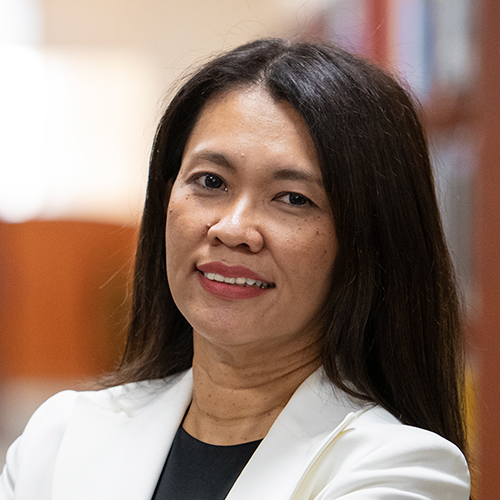
Norita Ahmad
Director
Cell | +971 50 108 7484
Email | [email protected]
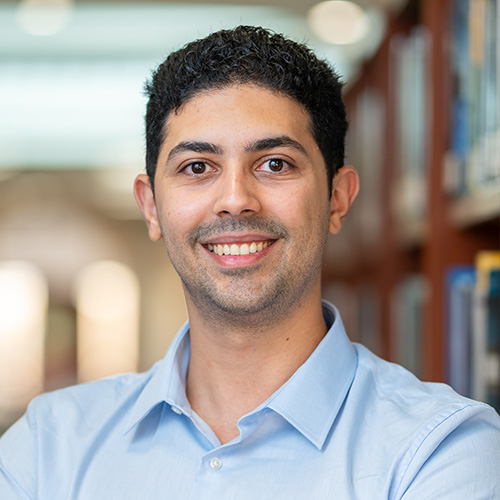
Mohamed Elhayany
Teaching and Learning AI Specialist
Tel | +971 6 515 2214
Email | [email protected]
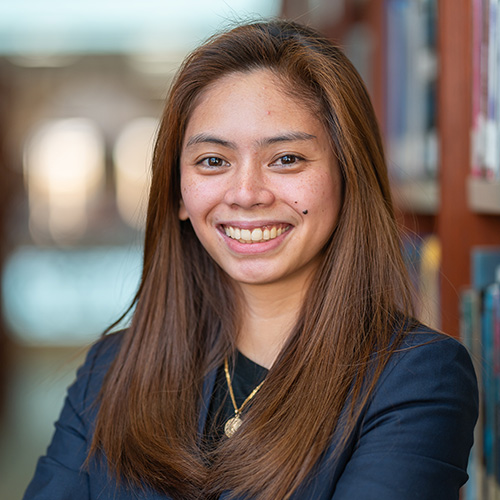
Lyka Layno
Administrative Assistant
Tel | +971 6 515 2279
Email | [email protected]



